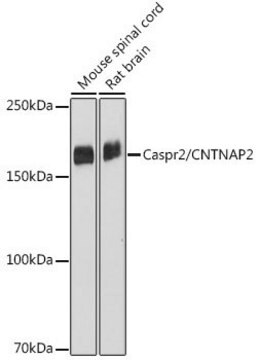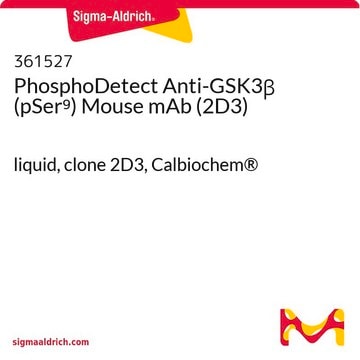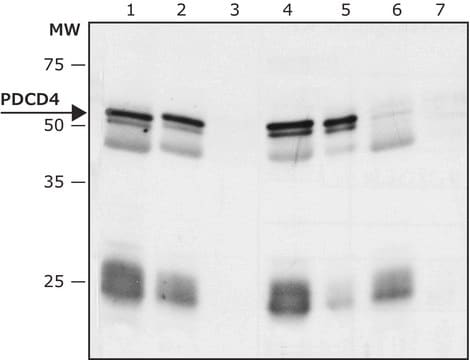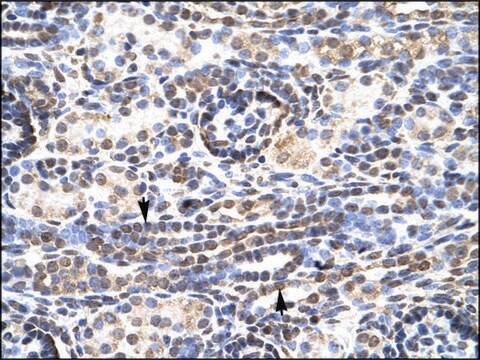AB15302-I
Anti-ProSAP2
Chemicon®, from rabbit
Synonyme(s) :
SH3 and multiple ankyrin repeat domains protein 3, Shank3, Proline-rich synapse-associated protein 2, SPANK-2
About This Item
Produits recommandés
Source biologique
rabbit
Niveau de qualité
Forme d'anticorps
affinity isolated antibody
Type de produit anticorps
primary antibodies
Clone
polyclonal
Produit purifié par
affinity chromatography
Espèces réactives
human, rat, mouse
Conditionnement
antibody small pack of 25 μg
Fabricant/nom de marque
Chemicon®
Technique(s)
immunohistochemistry: suitable (paraffin)
western blot: suitable
Numéro d'accès NCBI
Numéro d'accès UniProt
Modification post-traductionnelle de la cible
unmodified
Informations sur le gène
human ... SHANK3(85358)
rat ... Shank3(59312)
Description générale
Spécificité
Immunogène
Application
Qualité
Western Blotting Analysis: 1 µg/mL of this antibody detected ProSAP2 in 10 µg of rat brain microsomal preparation.
Description de la cible
Autres remarques
Informations légales
Vous ne trouvez pas le bon produit ?
Essayez notre Outil de sélection de produits.
Certificats d'analyse (COA)
Recherchez un Certificats d'analyse (COA) en saisissant le numéro de lot du produit. Les numéros de lot figurent sur l'étiquette du produit après les mots "Lot" ou "Batch".
Déjà en possession de ce produit ?
Retrouvez la documentation relative aux produits que vous avez récemment achetés dans la Bibliothèque de documents.
Notre équipe de scientifiques dispose d'une expérience dans tous les secteurs de la recherche, notamment en sciences de la vie, science des matériaux, synthèse chimique, chromatographie, analyse et dans de nombreux autres domaines..
Contacter notre Service technique








